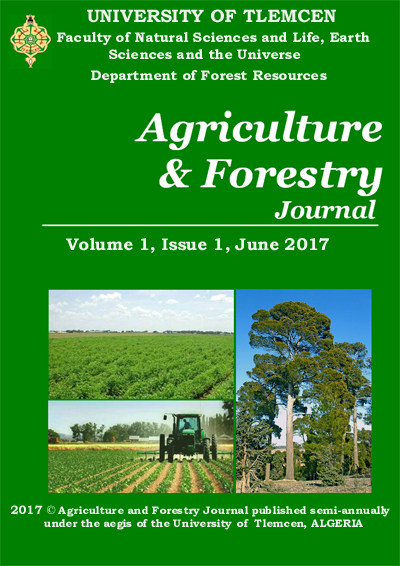The expected impact of climate change on forest species composition in the national park of Tlemcen-Algeria
Keywords:
Oaks, Mediterranean, Global warming, Uneven-aged standAbstract
At the planetary level, climatic forecasts announce for the next 50 years, an increase of the dry period and a decrease in rainfall. The Mediterranean forest landscape, already altercated through human activity, will undergo once again, the effects of this climatic warming tendency. Facing this double pressure, forest structures of oak coppices and shrub-lands in the national park of Tlemcen (North-west of Algeria) seem enough weak so to ensure sustainable landscape protection. The risks resulting from anthropogenic action, as well as the favorable dynamics for zen oak and oxycedar juniper compared respectively with cork and holm oaks, would be the beginning of a specific substitution and of an ecological and structural modification. Without neglecting the protecting and defending measures, forestry based on the species ecology and their dynamism could be a solution if it is led in uneven-aged and mixed stands, structure that proved real advantages as for the protection of biodiversity and the resilience against fire and pathology risks.









